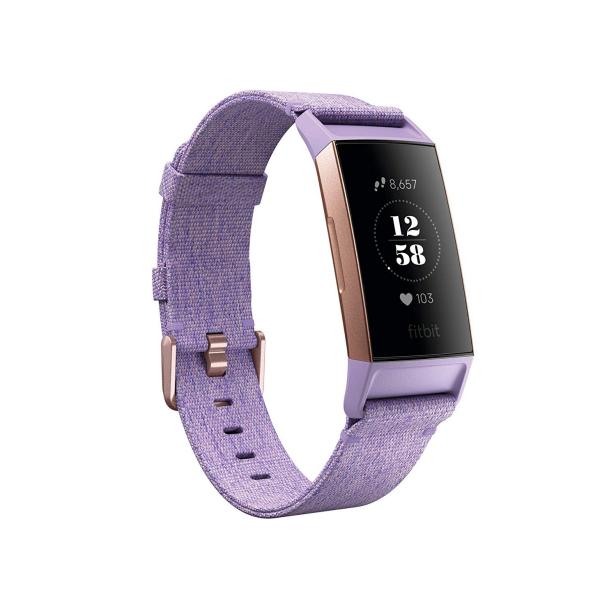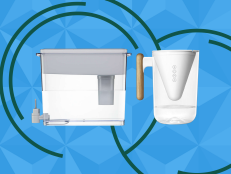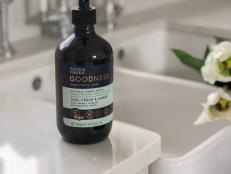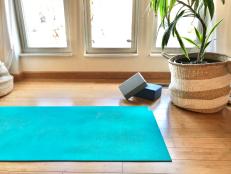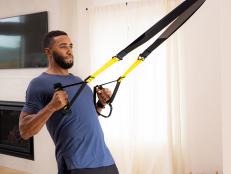The Best Fitness Trackers at Every Budget, According to Health Enthusiasts
Whether you're looking for a simple step tracker or a high-end smartwatch, these fitness tools for every budget will keep you moving.

There are a lot of good reasons to invest in a fitness tracker or smartwatch. For starters, if you're working on any goals to be more physically active or you're training for a challenge like a 5K, marathon or a big hike, these tools can provide data that keeps you moving.
In my own life, I've found that I appreciate fitness trackers that nudge me if I haven't gotten up and moved for a whole hour. As a writer, I typically sit at a desk (or, OK, on the couch) with my laptop for long stretches of time. I like Fitbit's default function to remind every hour if I haven't taken 250 steps. Not only does it get me moving, but it can help me get out of a productivity slump if I catch myself scrolling for too long on social media without realizing how much time has passed.
Fitness trackers can also help you measure your sleep patterns. While talking with a professional is always the best way to evaluate what changes you may need to make for your own health, this data can help you identify patterns you can change. If you notice you've been more tired than usual one week, for example, you may notice that you didn't realize you've been getting an average of two fewer hours of sleep.
While these devices aren't always cheap, there are options available for every budget. I researched top models with stellar reviews, talked with others who have personally tested them and tried a few myself. These options all offer different features in a wide range of budgets to suit any lifestyle.
If you're looking for an entry-level wearable that's focused on fitness without the other bells and whistles of a smartwatch, this might be it. The Inspire is highly rated on Amazon and by wearable tech review sites for its affordability, ease of use, and lightweight, minimalist design. Amazon reviewers also rave about its long battery life. The Inspire can go up to five days without charging.
You can purchase it with or without heart rate tracking capabilities. The Fitbit app tracks all of your stats so you can watch them change over time and set challenges for yourself, like changing the number of steps you set as your goal each day. You can also use the Fitbit app to compare your stats with friends so you can track activities together.
Fitbit's Charge 3 was my first real attempt at using a fitness tracker, and it got me hooked. It has a lightweight, surprisingly comfortable design and a long-lasting charge so you can go many days between charging. The data it compiles in the Fitbit app allows you to track changes over time, including your sleep quality. One of my favorite features of this watch is its silent alarm, which gently nudges you awake in the morning through vibrations on your wrist rather than jolting you awake with an alarm. This feature is not unique to the Charge 3, but I found it to work exceptionally well on this device.
Fitbit's Versa 2 is a comfortable and attractive smartwatch that counts your steps, monitors your heart rate and measures your sleep. I've found it to be an upgrade to the Fitbit Charge 3, as it's easier to read notifications on the larger, color screen and more streamlined to turn them off right from the watch when they become overwhelming. This watch also does a lot more than track your steps and sleep. You can set up a lot of different apps on the device, including Fitbit Pay, Uber, Pandora and Spotify, so you can control your music through the watch while you run. The Versa 2 also has an Alexa integration so you can control smart devices in your home and set reminders with Alexa right from your wrist.
Suunto specializes in GPS watches that can help you find your way in the backcountry. Mountaineering guide Wes Fowler told me he used the Suunto 9 to plan and track several days of ski tours and a mountain rescue. He said he was impressed with the watch's comfort, battery life and exercise tracking. He appreciated the ease and intuitiveness of using it to track activities, including a wide variety of activity types you're less likely to find on other devices. The Suunto 9 lets you track Nordic skiing, hiking, fishing and ski touring, for example, in addition to more common activities like running and swimming. It also connects with Strava so you can track and share runs, cycling and mountain biking and other activities.
This watch is best-suited as more than a mere step and run tracker. If you frequent backcountry areas, having GPS capabilities might be useful for you, otherwise, it might be overkill and a simpler tracker may be all you need.
The Apple Watch is the king of smartwatches for a reason: This device does a whole lot. You can send texts and make calls, use Apple Pay, track your activities and do a whole host of other tasks. It has a sleek design with a lot of function packed into a very small package. Friends who have long been Apple Watch users have told me the rings the device shows on the watch face, which offer a quick measure of the progress you've made toward goals like walking a certain number of steps or standing a certain number of hours, help them stay motivated to make healthier choices throughout the day. They also like the ability to easily share workout data with other friends using the device, so they feel like they're working together toward health goals rather than sweating alone.







